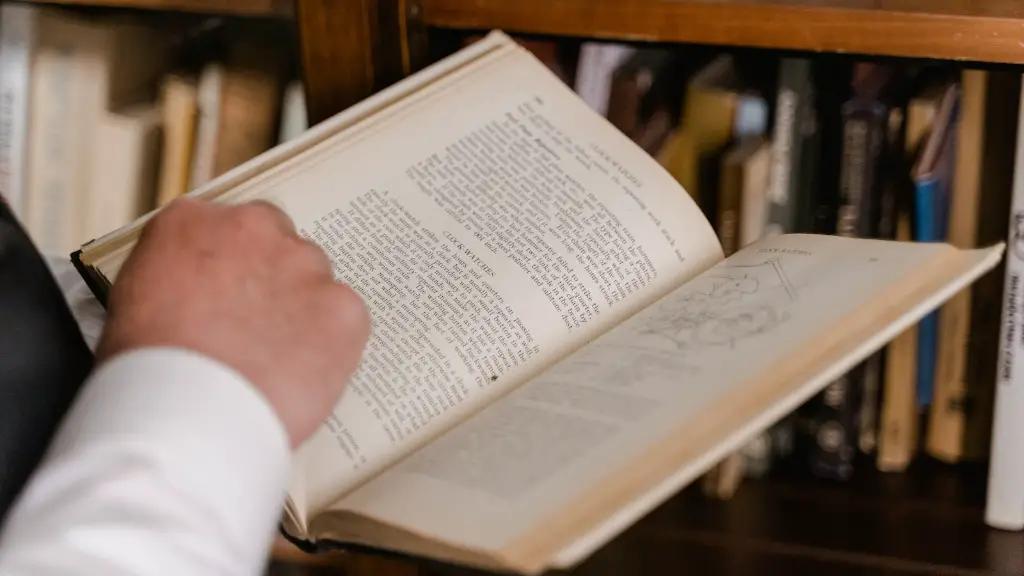Poetry is often viewed as a mysterious, highbrow art form that is difficult to understand, but there are many people who find the written word captivating. Poetry is the unique, intensive, expressive form of language, and it can be found in all genres, from traditional verse to modern, spoken word. So, what should you expect if you choose to take a journey into the world of poetry?
One of the things that make poetry such a powerful force is its ability to reach directly into the soul. With one look, a single poem can capture an entire world of emotion. It has the power to evoke nostalgia, to arouse joy, or to stir up powerful memories and sentiments of depths we never knew existed. Whether it’s a lighthearted limerick or a somber ode, poetry can affect change in the mind, body, and spirit.
In addition to its emotional potency, poetry has the potential to be intellectually inspiring. Poems can stir up creative thinking and often provide a unique perspective on life. This is especially true of poems that require multiple readings and interpretations. Certain works can challenge your understanding of the world by exploring mysticism, philosophy, and science.
But poetry does not belong exclusively to the academic realm. It’s also a means of exploring subjective experiences and traditional folklore. From times immemorial, tribal cultures have used poetry to pass down ancient stories, spiritual beliefs, and social values. Through symbols, allusions, and satire, poetry has always served as a means of conveying truths that the spoken language simply couldn’t capture.
So if you take the plunge and immerse yourself in the world of poetry, you may find that it offers something completely unique. In a sense, it is a journey into the unknown universe of words, and a chance to discover things that words alone could never convey. Furthermore, you may find that as you explore the different paths of poetic expression, it can open up new vistas of creativity, emotion, and understanding.
Journaling
One of the best ways to explore your poetic potential is through the practice of journaling. Writing down your thoughts and feelings is often the first step in understanding your inner self. As you document your experiences, you may find yourself expressing yourself in new and interesting ways. This provides the perfect opportunity for you to explore your creativity and find hidden layers of emotion.
Expressing yourself in writing can help you to channel your emotions constructively and relieve stress from anxiety, trauma, and other pressing concerns. Writing can also be instrumental in improving your communication skills and cultivating self-awareness. As a result, journaling can become an invaluable tool in bolstering your mental wellbeing.
In short, keeping a journal helps you to observe your thoughts, reflect on your experiences, and gain a better understanding of yourself. Through this practice, you will eventually develop your own unique style and be able to properly express yourself in words.
Forms
Poetry can take on many different shapes and sizes depending on the form used. From simple couplets to the intricate structure of sonnets and the intricate symbolism of blank verse, there is always something new to explore. Each form has its own unique qualities and capabilities, and it is up to you to find the one that resonates with your soul.
Popular forms of poetry include haikus, ballads, and epics. Haikus are short, usually three line poems that typically contain seventeen syllables. Ballads are much longer structures that often take on the forms of narratives or stories. And epics, from Homer’s Odyssey to Milton’s Paradise Lost, are the most expansive forms of poetry.
Performance
In recent decades, another popular style of poetry has emerged in the form of spoken word. This type of performance poetry combines the elements of storytelling, music, and performance art. Unlike other forms of poetry, spoken word is also characterized by its interactive nature. This means that you may be interacting with the audience throughout the performance, making it an exhilarating and dynamic experience.
Spoken word is also a great way to express yourself to a wider audience. Whether you are performing individually or as part of a group, it gives you the opportunity to make a statement, share your passions, and create a powerful impact on your listeners. When well executed, a spoken word piece can be incredibly moving and captivating.
Competitions
For those who are looking to take their written works to the next level, there are several poetry competitions available. These events offer the perfect platform for up-and-coming poets to showcase their skills and even win prizes. Generally speaking, these competitions are open to all, so it is a great way to get started in the world of poetry.
It doesn’t matter if you’re starting out or an experienced veteran, preparing for a poetry competition is an exciting and challenging journey. Once you’ve polished your piece and submitted it, all that is left is to wait and see how it fares with the judges. While there is a certain amount of risk involved, the thrill and satisfaction of competition is one of the best things about poetry.
Publishing
For those who have found success in poetry, there is the option of publishing. This can come in the form of traditional print publications, or digital publications such as eBooks and websites. Publishing your work can be incredibly rewarding, not only for the recognition it can bring, but for the potential to reach a broad, global audience.
In addition, published works may have the potential to earn royalties, which can be a great source of income. The success of one’s works is largely dependent on the quality of the content and the reach of the publication. But at the end of the day, the satisfaction of having your work published is of greater value than any monetary reward.
Inspiration
Finally, a great way to get inspired is to read other people’s work. You can do this by exploring online databases of classic and contemporary poems, or even by visiting your local library to find new, independent works. Reading the works of other poets is a great way to gain perspective and experience a different world.
If you hope to become a great poet, it is important to read, explore, and research poetry. You should also make a point of listening to the works of others, as this can often spark your creativity and set the wheels of inspiration into motion. Through these methods, you can naturally develop your own skills and unique writing style.




